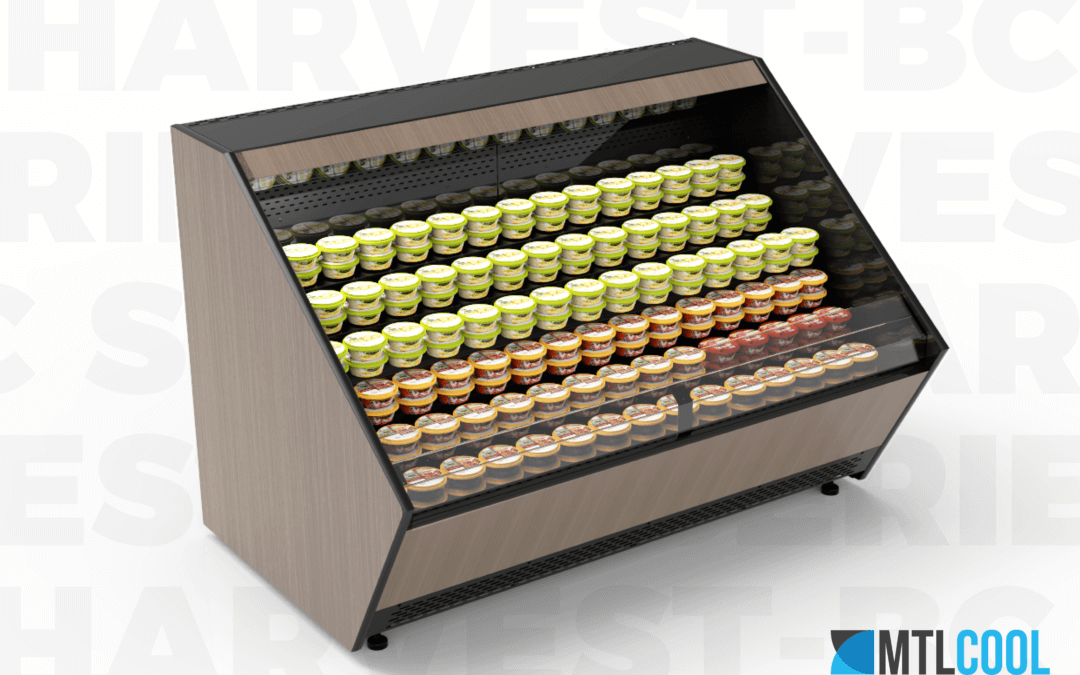On November 1st was World Vegan Day and for this occasion MTL COOL decided to explore the huge growth in popularity of plant-based products.
According to a recent article on Baystreet.ca1 ‘’The growth of this market is mainly attributed to factors such as increasing incidences of intolerance for animal protein, (…) new consumer aspirations, increasing vegan population, and significant venture investments in this sector.” This growth “is projected to increase from $4.6 billion in 2018 to a whopping $85 billion in 2030, according to investment firm UBS.’’2
We also learned that ‘’interest in plant-based dairy and meat alternatives by Gen Zs and Millennials extends beyond burgers and almond milk. […] consumers look for various meat, poultry, or seafood alternatives, flavor profiles and formats.’’3 They also look for snacks, grab-and-go and other day to day regular products to be certified vegan.
We took the opportunity to ask Sophie Létourneau VP Sales and Nicolas Bergeron CEO at Commensal Group, a pioneer in this category, to explain the philosophy behind veganism and also to comment on the huge growth that vegan foods are currently experiencing.

Q: To what do you attribute the growth in popularity of plant-based protein products?
A: We noticed a big impact since the publication of the new Canadian food guide in 2019. It highlights plant-based proteins and as the new generation learns based on these recommendations, young consumers grow up with more knowledge on these products. We notice that they are looking for a lot more plant-based products than previous generations.
Q: To what do you attribute the growth in popularity of plant-based protein products?
A: We noticed a big impact since the publication of the new Canadian food guide in 2019. It highlights plant-based proteins and as the new generation learns based on these recommendations, young consumers grow up with more knowledge on these products. We notice that they are looking for a lot more plant-based products than previous generations.
Q: Are plant-based proteins equal to animal proteins?
A: We can say yes. By combining certain foods we obtain equivalent animal nutritional values. For example, legumes and cereals are complementary and allow a complete supply of essential amino acids. Among all vegetable proteins, seitan is one of those that provides a very high protein intake
Q: Is it expensive to eat on a plant-based diet?
A: Seitan, tofu, legumes are actually often more affordable than meat.
Q: Is it difficult to find certified vegan products in traditional grocery stores?
A: There are several organizations that offer official vegan certifications, they require to follow rigorous criteria. On the other hand, these are still little known to the general population. Manufacturers therefore prefer to create their own logo in order to highlight this feature of their product.
Since vegan certification is not mandatory today, companies can create and customize their own “vegan” logo. When a company chooses to put forward the “vegan” claim on a product, it is required to respect it. The Food and Drugs Act states:
“It is prohibited to label, package, process, prepare, sell or advertise a food in a manner that is false, misleading or deceptive or likely to create a false impression as to its nature, value, quantity, composition, benefits or safety.”
The terms “vegan” and “vegetarian” do not have a precise definition according to the CFIA (Canadian Food Inspection Agency).

Q: Do you have any advice for those considering a plant-based diet or looking to reduce their consumption of animal-based products?
A: Dare to try it and learn how to work well with the product. For any new product there is a learning curve. It doesn’t matter if your first recipe isn’t good. We’ve all messed up a meal, just like many people have already overcooked a steak on the BBQ. And if at first, you are a little more hesitant there is a whole range of ready-to-cook that facilitates vegetarian meals.
Q: What are some of your favorite vegan products?
A: Currently the Commensal Veggie chicken Soup and Chili are the ones that come out the most. We also see a lot of interest in the whole range of ready-to-cook.
Q: What would you recommend to retailers to help them grow plant-based category in their stores?
A: The consumer’s willingness to buy this category of product is there, very present. Above all, it is necessary to give visibility to the products.
Q: Are there any misconception about a plant-based or vegan diet that you would like to set straight?
A: Being vegan is not just about eating vegetables and tofu. There are now plenty of choices and varieties to satisfy even the most difficult tastes.
Q: Is it anything else you would like to say about this category?
A: It’s now fun and accessible to eat vegetarian or vegan meals. Every week a new cookbook comes out with new ideas. Restaurants also now offer vegan options. A few years ago, the vegan choice in a menu was the salad, now there are several great vegan chefs with a lot of notoriety.

To meet this growing demand, traditional supermarkets will need to continue to add dedicated space for this category. A well merchandised display with the proper messaging can help educate consumers and facilitate finding and introducing plant-based products.
Whether you are a retailer looking to grow this category within your store(s) or an established or emerging brand with an awesome plant-based product, MTL COOL would love to accompany you on this journey. Contact MTL COOL today to discuss how we can help grow your sales and brand presence.
1Baystreet.ca – The Plant Based Market Could Explode 100-Fold by 2050
2Tracking the plant-based protein movement | Food Dive
3The Future of Plant-based Snapshot: The Evolution of Plant-based Continues.

